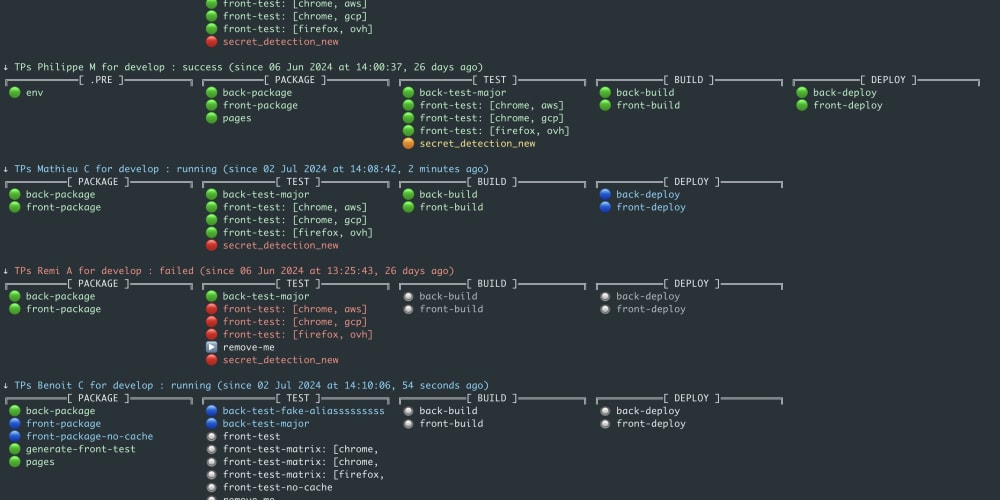Inspired by Scott Hanselmans wall mounted Family Calendar I installed a monitor with an attached Raspberry Pi Zero W 2 years back and been experimenting with various technical approaches to host the web page for this family board. Currently it is Blazor WebAssembly.
This app occasionally breaks (or has to recover from a wireless connection loss). Surely I will invest some time in the future to get down to the actual root cause of the problem, but until then I wanted to have a more or less intelligent way of refreshing when the kiosk app breaks.
setup required
- Linux
scrotutility to capture screen - Python 3 with
PILlibrary installed to evaluate color of captured screen -
xdotoolto refresh Chromium page
shell script to drive the process
The script evalscreen.sh
- uses
scrotto capture a low quality (20% is sufficient for evaluation) screen image - runs image through Python script
evalimage.py(see below) - with Python script signals an error level not equal to 0 a refresh with
xdotoolis initiated
#!/bin/sh
export DISPLAY=:0.0
export XAUTHORITY=/home/pi/.Xauthority
scrot -q 20 screen.png
$(dirname "$0")/evalimage.py
if [ $? -eq 0 ]
then
echo $(date -u) "OK"
else
echo $(date -u) "Aborted->Refresh"
xdotool key --window $(xdotool getactivewindow) ctrl+R
fi
This script is scheduled each minute with cron:
# m h dom mon dow command
*/1 * * * * /home/pi/evalscreen/evalscreen.sh >> /home/pi/evalscreen/evalscreen.log 2>&1
Python script to evaluate the image
Based on this StackOverflow post I created this Python script evalimage.py that determines the most present color in the captured image. As my family board has a black background I assume when the most present color is not black, it is broken. When assumed broken it exits with error level 1.
#! /usr/bin/python
from PIL import Image
import sys
def get_main_color(file):
img = Image.open(file)
colors = img.getcolors(256*1024) #put a higher value if there are many colors in your image
max_occurence, most_present = 0, 0
try:
for c in colors:
if c[0] > max_occurence:
(max_occurence, most_present) = c
return most_present
except TypeError:
#Too many colors in the image
return (0, 0, 0)
if get_main_color('screen.png') != (0, 0, 0):
print('Aw,snap')
sys.exit(1)
cleaning up
Not to forget that the growing log file needs to be kept in check. For that I added a file /etc/logrotate.d/evalscreen:
/home/pi/evalscreen/evalscreen.log {
rotate 12
daily
compress
missingok
notifempty
}
use & extend
You may use and extend these scripts from my repo by just cloning it to your pi users home.
closing
After looking into the issue itself after some days it turned out that I just needed to do a clean reinstall of chromium-browser and rpi-chromium-mods.



















